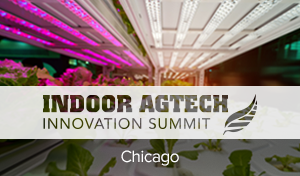Day 1: Monday March 18, 2024
7:45am
Breakfast Briefing // Building Frameworks for Regenerative Animal Agriculture
In complex farming systems, how can food groups, farmers and ranchers work together to develop practices and frameworks to create nature and climate positive actions for animal ag?
Moderator:
Renée Vassilos, Director of Agriculture Innovation, THE NATURE CONSERVANCY
Speakers:
Dana Ehrlich, Founder, VERDE FARMS
Paul Greive, Co-Founder & VP Sales & Marketing, PASTUREBIRD
Steve Wooten, 2021/2022 Chair, THE U.S. ROUNDTABLE FOR SUSTAINABLE BEEF
8:30am
Opening Remarks - Rethink Events
8:35am
Keynote Welcome Address // FDA Propels the Frontiers of Animal Health Innovation
Speaker:
Tristan Colonius, Chief Veterinary Officer & Deputy Director for Science Policy, FDA
8:50am
Opening Plenary // Building Collaboration around Innovative Solutions in Animal Health
- What strategies are being employed to facilitate greater collaboration between animal health
companies, start-ups, investors, and food producers to advance the development of new treatments
for animal health?
- In response to heightened concerns about zoonotic diseases among the general public, what specific
measures can food producers adopt to establish a more resilient animal farming system and a secure
supply chain?
- How can producers of animal nutrition and feed additives actively contribute to reducing the
necessity for medical interventions in animals?
- As antimicrobial resistance increasingly threatens both animal and human health, how does an
improved understanding of animal health play a role in reducing reliance on antibiotics and antiparasitic medications?
Moderator:
Spencer Swayze, Managing Director, PAINE SCHWARTZ
Speakers:
Jeffrey Silverstein, Acting Associate Administrator, USDA ARS
Mike Leventini, SVP Live Production & General Manager, PERDUE FARMS
Rimma Driscoll, EVP & Head of Global Strategy, Commercial and Business Development, ZOETIS
9:30am
Case Studies // Targeting the Gut: Precise Solutions for the Microbiome
- How is a deeper knowledge of gut composition enabling the development of pro and pre-biotic and
metabolite products to give targeted adjustments to the entire microbiome?
- What datasets are available to help the discovery of products that are beneficial for animal health,
welfare, sustainability, or productivity? How can the sector leverage this data to improve
treatments?
- Are there innovations that the sector can harness from the human health sector that can help
shorten product development cycles and build precise solutions for animal care?
Moderator:
Bob Nordgren, Managing Partner, COVENANT ANIMAL HEALTH PARTNERS
Speakers:
Aaron Schacht, CEO, BIOMEDIT
Christopher Belnap, CEO & Co-Founder, RESILIENT BIOTICS
Leonardo Gondim, Strategy, Portfolio & SMT Director, CARGILL ANIMAL NUTRTION
10:10am
Fireside Chat // Building Resilience: Rearing Healthier Animals through Novel Products
- With a growing number of novel products and technologies being commercialised, how is their efficacy on the farm meeting clinical expectations?
- mRNA vaccines are now being used commercially in Swine operations, and in trials for other species, what is the potential for new technologies such as these to revolutionize animal care and protect against existing and emerging diseases?
- How are novel techniques allowing for improvements in on-farm health whilst also improving welfare for animals with less stress and fewer interventions?
- What is needed to continue developing and scaling these novel treatments and technologies to expand the toolbox for improving animal health in food production?
Moderator:
Dave Summa, Venture Partner, GENOA VC
Speakers:
Tracy Raines, Vice President of Research and Development, MAZEN ANIMAL HEALTH
Tristan Colonius, Chief Veterinary Officer & Deputy Director for Science Policy, FDA
10:35am
Networking Coffee Break
Hosted by:

- How can the supply chain collaborate to ensure accurate accounting of the environmental and
climate impact of animal agriculture?
- What new and emerging tools are currently available for measuring soil carbon, GHG emissions and
water usage?
- What challenges arise in ensuring sound stewardship on extensive ranches and farms and how can
food producers share knowledge to continually enhance best practices?
- With more accurate accounting, does that open the door to carbon credit schemes for livestock
farming, and is this a desirable opportunity?
Moderator:
Marilyn Hershey, Chair, DAIRY MANAGEMENT INC.
Speakers:
Darrin Monteiro, VP Sustainability & Membership, CALIFORNIA DAIRIES
Kyle McKinney, VP of Innovation, ALLTECH
Kerryann Kocher, CEO, VYTELLE
Frank Mitloehner, Professor, UC DAVIS
11:45am
Fireside Chat // Connecting the Agri-Food Chain for Circular Food Production
- How can food waste and agricultural side streams be valorized to make high-quality feed to reduce
the environmental impact of poultry and swine feed sourcing?
- Considering the logistical and environmental challenges associated with manure management in
meat production, what are the most effective methods for upcycling manure?
- What are the incentives for the uptake of circular resource use, and is it the role of the private sector
or public regulation to make sustainable practices economically viable?
Moderator:
Sarah Nolet, Co-Founder & Managing Partner, TENACIOUS VENTURES
Speakers:
Justin Ransom, Director, Sustainable Food Strategy, TYSON FOODS
Kate Worley, VP of Sustainability, DENALI
Maye Walraven, Chief Impact Officer & North America General Manager, INNOVAFEED
12:10pm
Panel // From Academic Trial to Commercial Use: How can the Adoption of Methane Inhibitors Be Maximized for Impact?
- Now that the first global commercial use cases of methane inhibitors in cattle have started, are they
meeting the expectations set by laboratory trials?
- What are the obstacles to scaling methane inhibitors for widespread use and how can the sector
collaborate to accelerate this process?
- With better understanding of the impact of genetics, health and nutrition on enteric methane
production, can methane reduction practices be combined to produce larger reductions in
emissions?
- How can commercial incentives be implemented to encourage farmers and ranchers to adopt
methane reduction practices in cattle rearing?
Moderator:
Sarah Klopatek, Chief Livestock Scientist, JBS
Speakers:
Steve Meller, CEO, CH4 GLOBAL
Thomas Hafner, Founder, MOOTRAL
Meredith Harrison, Lead Scientific Adviser, C-LOCK
Tamara Loiselle, CEO & Founder, SYNERGRAZE
12:50pm
Presentation // Genetics & Sustainability: Optimizing Crossbreeding for Dairy-Beef Calves
- How is improved genomic understanding allowing breeders to maximize the value out of crossbred
calves?
- What advantages do dairy-beef cross cows have for sustainability, animal welfare and ultimately, the
bottom line for dairy farmers?
Speaker:
Matthew Cleveland, Director of Global Beef Sustainability & Product Development, GENUS
2:00pm
Panel // Preparing for the Future: Improving Automation and Precision Systems to Boost Production with Less Labor
- With precision farming solutions becoming more commonplace in meat and dairy production, what
lessons have been learned from early adopters that can help guide early-stage companies in
developing more effective products?
- As automation helps reduce interventions on farms and decreases the need for labor hours, how can
livestock operations reduce costs while still improving care and efficiency in meat and dairy
production?
- On-farm data is crucial to the development of many precision farming systems, how can we ensure
that those developing products for animal farming have access to the right quantities and quality of
data?
- What factors need to be considered when designing automated and precision systems to allow
productive use on all sizes of farm operations?
- How can the sector ensure that labor forces have the skills and knowledge necessary to extract the
most value out of precision livestock platforms?
Moderator:
Aidan Connolly, President, AGRITECH CAPITAL
Speakers:
Lars Bergmann, EVP Digital Services, DELAVAL
Stephen Murray, AVP, MERCK ANIMAL HEALTH VENTURES
Lisbeth Jacobs, CEO, GALLAGHER ANIMAL MANAGEMENT
William Herring, VP R&D, COBB-VANTRESS
2:40pm
Lightning Talks // Applying AI to Animal Ag: Intelligent Insights for Improved Care
- How is AI being applied to animal agriculture to help improve the welfare and health of animals in barns and parlors?
- Where is AI able to monitor and assist the feeding process to ensure efficient use of resources and create a more sustainable supply chain?
Moderator:
Rob Trice, Founding Partner, BETTER FOOD VENTURES
Speakers:
Leonardo Sá, Head of Global Precision Service, DSM-FIRMENICH & Former CEO, PRODAP
Claudia Roessler, Director Agriculture Strategic Partnerships, MICROSOFT
Stefan Scherer, CEO, SMAXTEC
3:20pm
Roundtable Discussions
Join focused, interactive discussion groups to deep dive into topics most relevant to you and your business.
- Improving Emissions Reports: Connecting Industry and Academia for Accurate Accounts
Host: Sarah Klopatek, Chief Livestock Scientist, JBS
- Carrot, Stick or Collaboration: Ensuring Companies Deliver on Climate Promises
Host: James Pearce, VP Biology, CH4 GLOBAL
- Carbon Credits: Finding Viable Applications in Animal Agriculture
Hosts: Darrin Montiero, VP Sustainability & Membership, CALIFORNIA DAIRIES & Paul Myer, CEO, ATHIAN
- Biotechnology Innovation: Accelerating Development Through Partnerships and Investment
Host: Yanniv Dorone, VP, FALL LINE CAPITAL
- Environmental and Financial Sustainability: Breeding Cattle for Increased Productivity
Host: Lee Leachman, CEO, LEACHMAN CATTLE
- Smart Ag Solutions: The Role of AI in Animal Health
Host: Steve Brody, CEO, BIOCONNECT IOWA
- Attracting Producer Partnerships: Communicating the Potential of Start-Ups
Host: Jerrod Westfahl, Chief Strategy Officer, INNOVATIVE LIVESTOCK SERVICES
- End-to-End Communication: Improving Entire Supply Chain Emission Reductions
Host: Justin Ransom, Director, Sustainable Food Strategy, TYSON FOODS
- Beyond the Price Tag: Unleashing Value in Animal Protein Production
Host: Jan Bouten, Partner, INNOVA
- Beef Cattle Sustainability: Utilizing Technology for Improved Health, Breeding, and Carbon Verification
Host: Kevin Biffert, CEO, 701X
- Investment in Latin America: Exploring Opportunities to Scale in LATAM
Host: Pedro Sampaio, Corporate Venture Capital Investment Manager, MINERVA FOODS
4:00pm
Networking Coffee Break
Six of the most innovative early-stage start-ups take to the stage to give a quickfire pitch to a panel of
investors followed by audience Q&A.
Investors:
Jan Bouten, Partner, INNOVA
James Caffyn, Partner, LEVER VC
Start-Ups:
Laxmi Stebbins Wordham, Chief Growth Officer, BRIGHT FEEDS
Andrew Minarick, CEO & Founder, BOVEYE
Lucas Jagodnik, Co-Founder & CEO, APELIE ROBOTICS
Eli Hornstein, Founder, ELYSIA CREATIVE BIOLOGY
Kim Livingston, Chief Research Officer, OPTUM IMMUNITY
5:15pm
Investor Panel // Finding the Right Funding Models for Start-Ups in Animal AgTech
- Will the reduction in capital availability cause start-ups in the agricultural sectors to mature and
focus more on commercial targets to attract capital in the new economic environment?
- With longer development cycles for start-ups working in biotechnology and animal health, what is
the best funding model to ensure long-term support for start-ups?
- How can ag-specific investors in the sector work with generalists or climate investors to attract more
funding to start-ups working to improve livestock farming?
- Are external investors becoming more knowledgeable about the agri-food sector, and therefore
becoming shrewder in their investments?
- Beyond the short term, what are the expected levels of capital coming into the animal ag sector, and
how can investors and entrepreneurs work together to attract more funding, and more funding
types into animal protein production?
Moderator:
Maarten Goossens, Founding Partner, ANTERRA CAPITAL
Speakers:
Cristina Rohr, Managing Director, S2G VENTURES
Duane Cantrell, CEO & Managing Partner, FULCRUM GLOBAL CAPITAL
Tim Hassler, Managing Director, LEWIS & CLARK AGRIFOOD
Philip Erlanger, Managing Partner, ALIMENT CAPITAL
6:00pm
Happy Hour Networking Drinks

 CLOSE
CLOSE







